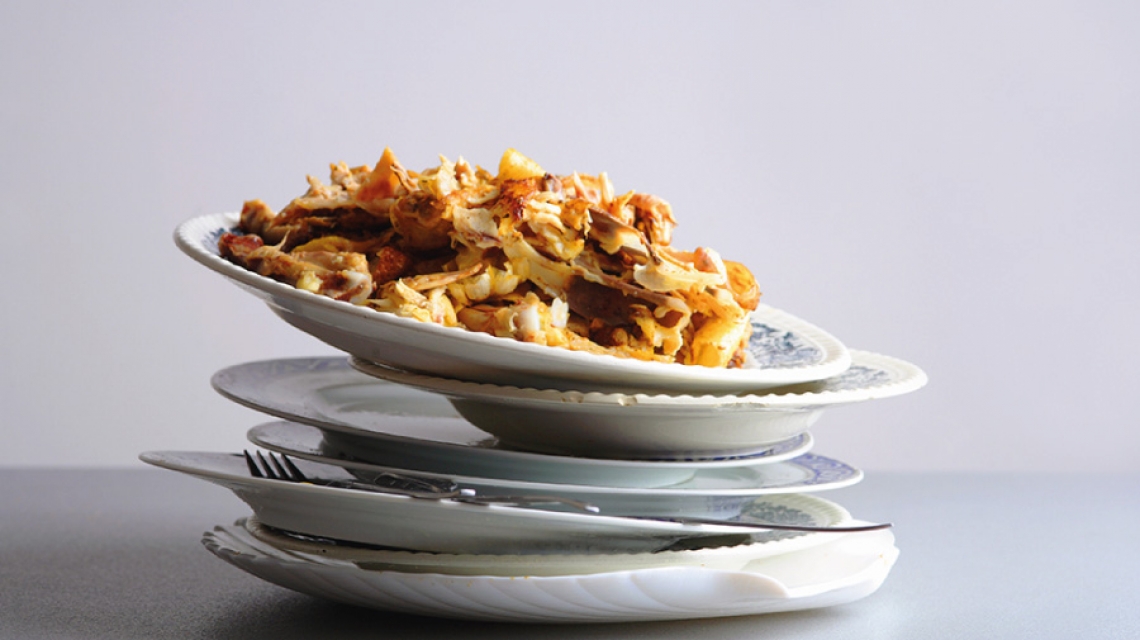
For the countries of the Gulf Cooperation Council (GCC), fast-growing populations, increased food consumption rates, relatively small agricultural sectors and limited water resources make food security a vital issue. The UAE is no exception. Of all the GCC countries, in 2013 the UAE had the highest per capita food consumption rate of 1,486 kg per year and is expected to hold the lead through at least 2017.
With high consumption comes a high level of waste. It is estimated that nearly 3.27 million tons of food is wasted in the UAE every year. This wasted food is worth more than USD3.54 billion. In Dubai, for instance, food waste accounts for approximately one-third of all waste that ends up in the landfill.
A significant contributor to food waste is the hospitality sector, which is a crucial part of the UAE’s vibrant tourism and entertainment industries. Hotels and restaurants often cater to large numbers of guests at one time, which can lead very large amounts of food waste.
To help use food more efficiently, over the last three years our research team at Masdar Institute has conducted interviews with representatives of more than 50 UAE hotels to better understand the current status of food waste management in the UAE hospitality industry. We then quantified the amount of food waste generated during meal services in many of these hotels, with interesting results. We found that the waste from serving dishes in a buffet setting was often very significant.
Our team won the best presentation award when our work was presented at the World Resources Forum in Davos, Switzerland, in 2013.
Through our research, which falls under Masdar Institute’s Research Center for Water and Environment (iWater) theme of waste management and utilization, we also were able to pinpoint factors important to determining the “wastefulness” of an event. These factors include the type of service (e.g., breakfast buffets can be less wasteful than an a la carte service) and typical over-estimation of number of diners expected for a meal service.
To account for the interplay of these various parameters, we developed a performance indicator called the Food Waste Rating for Events vis-à-vis Sustainability in the Hospitality sector (FRESH) Number, to rate the sustainability of food service at hospitality sector events. This metric is the first of its kind for the hospitality sector and has the potential to be used to rate events all around the world.
As a consequence of our work, we have been testing several possible solution strategies at different events.
One of the strategies we have developed uses a uniquely-shaped service plate for rice-based dishes. We have observed that in buffet-style meals for dishes containing both protein and carbohydrates, the protein component is often consumed first, causing a portion of the carbohydrates to be left behind, thus generating waste. Moreover, when these dishes are served to guests in this region, the service plates are filled abundantly to ensure a bountiful appearance, leading to more waste.
To meet this challenge, we developed what we call the Anti-Wastage Service Dish, which achieves a better balance between the portions of protein and carbohydrates in the served amount, while ensuring the traditional bountiful appearance. This is accomplished by making the middle part of the plate curve upward so a smaller amount of carbohydrate is needed to make the dish look full. This decreases both food waste and food costs.
Our initial conservative estimate is that use of such a dish could save 73,000 kg of food annually, and that is just in the UAE! In recognition of the difference our innovation can make, early in November we won the Hospitality Innovator Award as part of the Hospitality Technology Forum 2015 inDubai. Currently, this new dish concept is being tested in collaboration with a leading food catering company in Abu Dhabi.
The GCC hospitality sector can play a pivotal role in helping to decrease both food demand and food waste, thereby helping to increase food security and sustainability and decrease food imports to the region. Academic institutes like Masdar Institute can play a key role in generating innovative ideas for the sector.
Sanaa Pirani is a PhD student at Masdar Institute, where Dr. Bruce Ferguson is Professor and Head of the Institute Center for Innovation and Entrepreneurship and Dr. Hassan Arafat is Associate Professor of Chemical and Environmental Engineering.